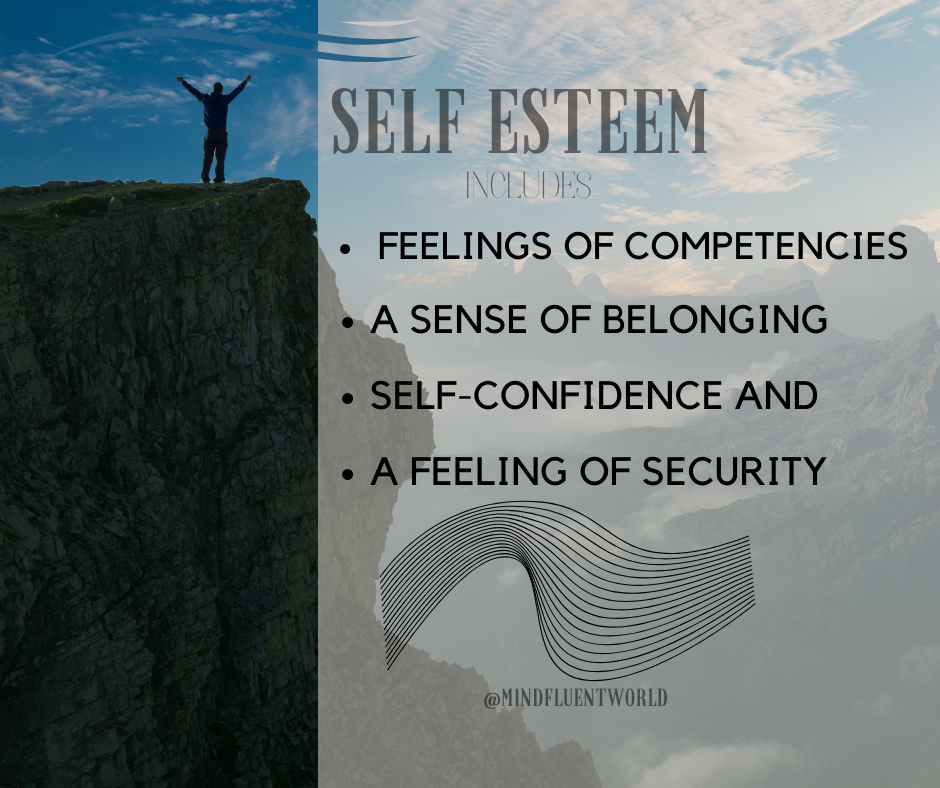
Self-esteem, how to build it?
Self-esteem, how to build it?
Can we get ourselves to feel more competent? What is self-esteem?
There are times when we feel low and powerless to move forward, we feel as though we don’t have the necessary strength, capacities and will to move through the obstacles of life. This makes us feel a very low self-esteem and a very strange sense of being incompetent. And this strikes all human beings, no one is spared, at some point during the day or the week all of us feel related to this. I believe, perhaps strangely enough, that this in itself is a very important way of making us ready to power through and master our own selves to a deeper degree and sharpen our beliefs, emotions and get back our sense of esteem and power or competence. This is so eloquently brought up by the well-known author Ryan Holiday in his bestselling book, Obstacle is the Way, where he argues that the very nature of us having difficulties and obstacles is to sharpen us and to get us ready to move through the hurdles of everyday life. Those are the necessary ingredients that make us enough stronger to get up and move.
Self-esteem and confidence are two essential elements that play a crucial role in shaping our mental and emotional well-being. They are often intertwined, and a lack of one can lead to a deficiency in the other. Self-esteem is the way we view ourselves and our worth, while confidence is the belief in our abilities and trust in our decisions. Both self-esteem and confidence can be affected by various factors, including past experiences, relationships, and societal influences.
Having healthy self-esteem can influence your motivation, your mental well-being, and your overall quality of life. However, having self-esteem that is either too high or too low can be problematic. Better understanding what your unique level of self-esteem is can help you strike a balance that is just right for you.
People who experience a steady diet of disapproval from important others—family, supervisors, friends, teachers—might have feelings of low self-esteem. Yet the healthy individual is able to weather off-putting evaluations.
Each person’s experience is different, but over the course of the lifespan, self-esteem seems to rise and fall in predictable, systematic ways. Research suggests that self-esteem grows, by varying degrees, until age 60, when it remains steady before beginning to decline in old age.
Self-esteem can influence life in myriad ways, from academic and professional success to relationships and mental health. Self-esteem, however, is not an absolute characteristic; successes or setbacks, both personal and professional, can fuel fluctuations in feelings of self-worth.
How can you we enhance self-esteem and confidence building?
No one person is less worthy than the next person, and no one is deemed more important. Knowing this detail is crucial. To feel more confident and have healthy self-esteem, it helps to put aside fears of being worth less than others.
I feel like I can’t do anything right. What should I do? There are plenty of examples of practicing the habit of self-esteem and confidence building. Here are a few tips to help you on that journey:
- Practice self-compassion and self-care
- Set realistic goals
- Cultivate the habit of positive thinking
- Surround yourself with positive people
- Celebrate your accomplishments
- Live in the present
How to reach your full potential?
Reaching your full potential requires a strong sense of self-esteem and self-confidence. Self-actualization represents the pursuit of reaching one’s full potential. The concept is rooted in a theory established in 1943 by Abraham Maslow. The psychologist set forth a hierarchy of psychological needs, illustrating an order of human motivation. At the base of Maslow’s motivational pyramid lies physiological needs, such as the air we breathe and the food we consume. Once those needs are met, it is possible to pursue needs for safety, love and belonging, and self-worth.
Self-actualization occurs when the more basic needs are met or in the process of being met and it becomes possible to strive to add meaning and personal and social fulfillment to existence—through creativity, intellectual growth, and social progress. As Maslow himself stated, “What a man can be, he must be. This needs we may call self-actualization.” However, self-esteem can be considered as a prerequisite for self-actualization, as it creates the foundation of self-belief, and self-trust which are essential for taking actions towards reaching one’s potential.
How can someone feel more secure about themselves?
It’s easy to feel insecure and distressed about it. An insecure person needs reassurance from the people around them. This person wants others to make decisions and set goals for them. But taking personal agency is the first step toward feeling more secure and feeling healthy self-esteem.
Building self-esteem and confidence is a process that requires time, effort and commitment. By understanding the underlying causes of low self-esteem and learning strategies to overcome them, we can take control of our thoughts, emotions and actions. Full self-esteem cannot be achieved overnight, it takes time and consistent effort, so it’s important to be patient with ourselves and focus on making small improvements over time.
Remember, building self-esteem and confidence is not a destination, but a journey. Keep in mind that setbacks are a normal part of the process, and never be afraid to seek help or support from others. With the right mindset and tools, you can improve your self-esteem and confidence, and live a happier, more fulfilling life.
Self-esteem and confidence is like a muscle that requires regular exercise, so start today and see the difference it can make in your life.
©MindfluentWorld

